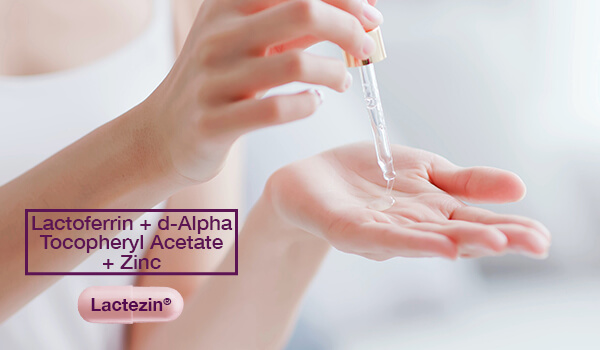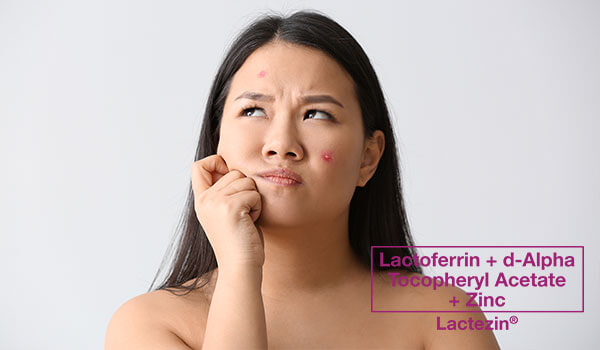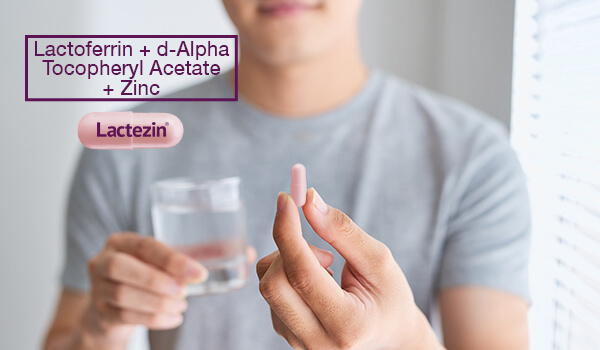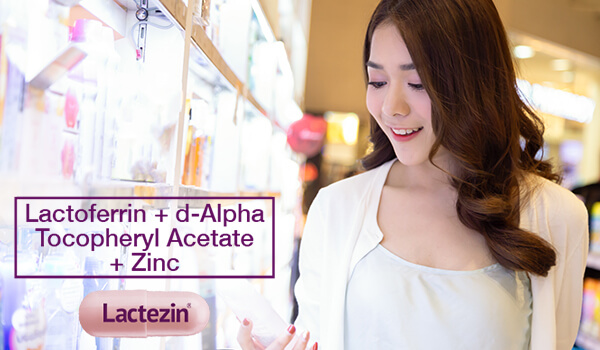Vitamin E and Your Skin: the Benefits You Need to Know

Vitamin E may be one of the most common skin care ingredients out there. You’ll find it in most cleansers, toners, moisturizers, serums, eye creams and even body lotions. But what is vitamin E and what can it do for your face and overall skin health? Read on for the must-knows and more!
Vitamin E and What it Promises for Your Overall Health
“Vitamin E” is a collective name for 8 tocopherol and tocotrienol compounds. Its properties, the fat-soluble, essential vitamin is best known for its antioxidant effects. For a quick refresher: antioxidants prevent damage in cell membranes by fighting free radicals (and preventing oxidative stress). This benefits multiple systems and functions that impact your overall health, including the following:
-
Supports the Body’s Immune System
Vitamin E plays a number of critical roles that help optimize the body’s immune response to threats such as viruses and bacteria. Among others, vitamin E is involved in the production of red blood cells, as well as in the usage of vitamin K which is also an essential nutrient for immune and inflammatory responses. -
Aids in Muscle Repair
Helping preserve the integrity of tissues, taking vitamin E regularly can assist in building and strengthening muscles. Encouraging optimal cell repair and renewal, vitamin E helps muscles recover from stress and tears. -
Promotes Healthy Brain Function While Aging
Although more research is needed, vitamin E is being studied for its brain-health benefits. As one ages, the brain becomes more and more susceptible to oxidative stress. With its antioxidant powers, vitamin E is thought to prevent or delay the cognitive damages brought about by free radicals.
The Benefits of Vitamin E for Your Face & Skin
In the same way it helps with various systems in the body, vitamin E helps nourish skin to its best with its antioxidant properties. Regularly exposed to daily environmental stressors like unprotected sun exposure and air pollution, your face and skin need the cell-protecting, cell-repairing powers of vitamin E too. Check out this short list of what regular, ample amounts of vitamin E can do for your skin.
-
Helps Protect Against Sun Damage
Too much sun can cause sunburn. But more than that, the sun’s ultraviolet rays can penetrate deep into the skin and damage skin cells. Especially when combined with vitamin C, vitamin E can act as a natural form of sun protection, blocking free radicals from forming and wreaking havoc on your skin.
Regular intake of vitamin E is also believed to help with treating hyperpigmentation (dark spots caused by excessive sun exposure), as it influences skin cells to renew at an optimal rate. -
Helps Keep the Skin Hydrated and Protected
Oil-soluble, vitamin E is naturally compatible with the skin’s lipid barrier. Once absorbed into the skin, the nutrient replenishes the skin with hydration, and helps strengthen the skin’s natural protective barrier. As it helps reinforce the lipid barrier, the vitamin keeps harmful elements out while also enabling the skin to retain moisture. -
Helps Prevent the Premature Appearance of Skin Ageing
Aside from keeping harmful UV rays out, and ensuring that the skin stays hydrated, vitamin E improves cell turnover and renewal. This means that old skin cells are regularly shed off, making way for new cells to surface. On the outside, this is how skin stays firm and youthful-looking without the premature appearance of wrinkles and fine lines. -
Helps Treat & Prevent Acne
Bothered with stubborn acne? Vitamin E can help. By helping the skin stay moisturized, it keeps the skin’s sebaceous glands from going into overdrive in its production of sebum. Because vitamin E strengthens the skin’s natural protective barrier, it helps with keeping bacteria out. Aside from its antioxidant content, vitamin E also has anti-inflammatory properties that can prevent inflammatory acne from occurring.
In addition to helping skin look its best, vitamin E is also found to be helpful in minimizing the symptoms of psoriasis and atopic dermatitis (also known as eczema).
A Daily Dose of Vitamin E and More
The best source of vitamins is from nutrient-rich foods. For vitamin E, that would include eggs, nuts, vegetable oil and green leafy vegetables such as spinach and broccoli. For support, supplements help you reach the ideal daily amount of nutrients that you need.
Experience the benefits of vitamin E for skin with daily intake of Lactoferrin + d-Alpha Tocopheryl Acetate + Zinc (Lactezin). It is an over-the-counter anti-acne drug that combines the skin-nourishing powers of vitamin E with the antibacterial properties of lactoferrin and the oil-regulating effects of zinc. With regular use, Lactoferrin + d-Alpha Tocopheryl Acetate + Zinc (Lactezin) helps treat and prevent pimples, leaving skin clear in as early as 2 weeks when taken twice daily.
Read more about vitamin E and the right skincare ingredients to look for in your products. Lactoferrin + d-Alpha Tocopheryl Acetate + Zinc (Lactezin) is available in all leading drugstores nationwide. You may also purchase online through Lazada and Shopee.
If symptoms persist, consult your doctor.
SOURCES:
https://www.healthline.com/health/all-about-vitamin-e#more-research
https://www.healthline.com/health/vitamin-e-for-face#benefits
https://www.allure.com/story/vitamin-e-skin-care
https://www.pelicanhealthcare.co.uk/reasons-why-you-should-be-using-vitamin-e-this-summer/
https://medlineplus.gov/ency/anatomyvideos/000125.htm
https://www.harpersbazaar.com.sg/beauty/a-beginners-guide-to-vitamin-e/
https://www.huffpost.com/entry/vitamin-e-oil_n_5a3bee50e4b0b0e5a7a08abc
ASC Reference No. U009P041921LS


